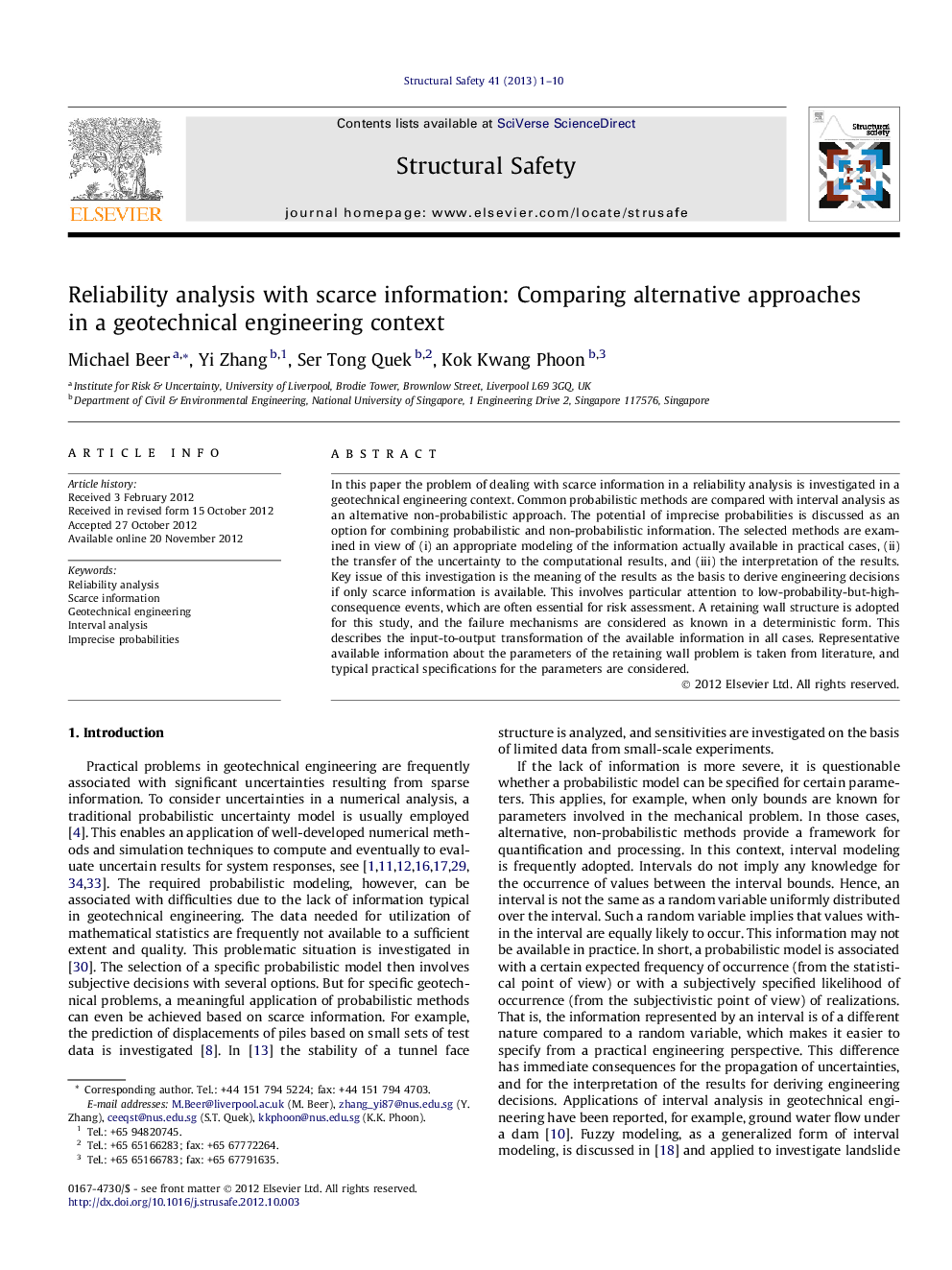| Article ID | Journal | Published Year | Pages | File Type |
|---|---|---|---|---|
| 307562 | Structural Safety | 2013 | 10 Pages |
In this paper the problem of dealing with scarce information in a reliability analysis is investigated in a geotechnical engineering context. Common probabilistic methods are compared with interval analysis as an alternative non-probabilistic approach. The potential of imprecise probabilities is discussed as an option for combining probabilistic and non-probabilistic information. The selected methods are examined in view of (i) an appropriate modeling of the information actually available in practical cases, (ii) the transfer of the uncertainty to the computational results, and (iii) the interpretation of the results. Key issue of this investigation is the meaning of the results as the basis to derive engineering decisions if only scarce information is available. This involves particular attention to low-probability-but-high-consequence events, which are often essential for risk assessment. A retaining wall structure is adopted for this study, and the failure mechanisms are considered as known in a deterministic form. This describes the input-to-output transformation of the available information in all cases. Representative available information about the parameters of the retaining wall problem is taken from literature, and typical practical specifications for the parameters are considered.
▸ Dealing with scarce information in a geotechnical reliability analysis is investigated. ▸ Common probabilistic methods are compared with alternative approaches. ▸ Meaning of results is scrutinised to derive engineering decisions.
